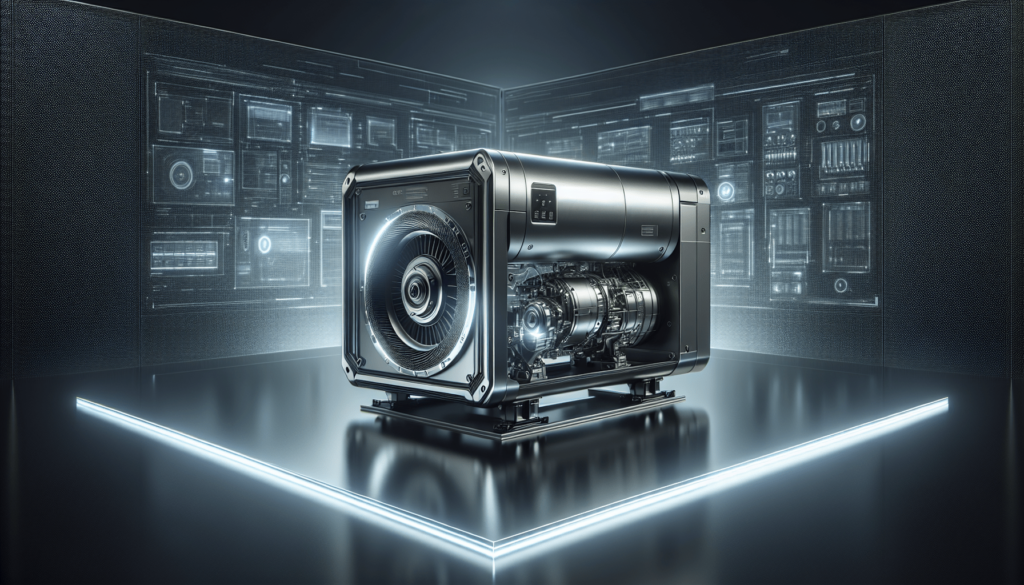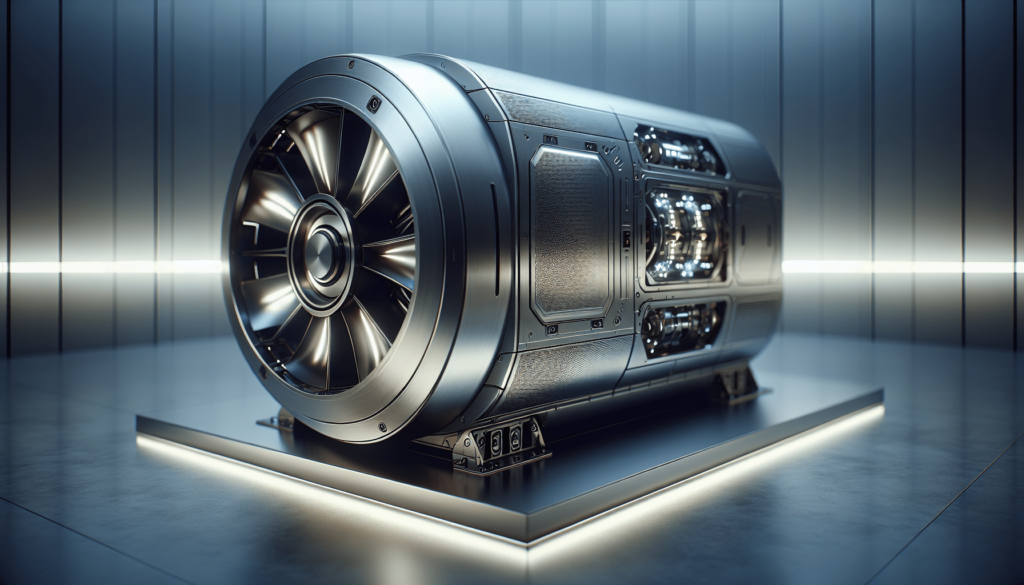
Have you ever wondered if a fuelless generator is real? The concept of a fuelless generator, a device that generates electricity without consuming traditional fuels, is both intriguing and controversial. Claims surrounding these generators often promise a future of free and sustainable energy. But, how much of this is grounded in reality, and how much is mere fantasy? Let’s unravel the mystery together.

What is a Fuelless Generator?
A fuelless generator is perceived as a machine that can produce electricity without the typical involvement of fuel sources such as gasoline, diesel, natural gas, or coal. The idea is captivating: imagine a world where you can have a steady supply of energy without the environmental impacts or costs associated with fossil fuels.
Common Types of Energy Generators
Before diving deeper into fuelless generators, it’s useful to understand the different types of generators we use today:
| Type of Generator | Fuel Source | Efficiency | Environmental Impact | Common Usage |
|---|---|---|---|---|
| Gasoline Generators | Gasoline | Moderate | High | Portable applications |
| Diesel Generators | Diesel | High | High | Industrial, backup power |
| Natural Gas Generators | Natural Gas | Moderate | Moderate | Residential, commercial |
| Solar Generators | Sunlight | High | Low | Residential, off-grid |
| Wind Generators | Wind | Variable | Low | Utility-scale wind farms |
| Hydroelectric Generators | Water currents | Very High | Variable | Large-scale power plants |
By understanding these types, it highlights the question: can a generator that needs no fuel to function exist outside of these categories?
History and Development of Fuelless Generators
The concept of a fuelless generator is not new. Various inventors and scientists have worked on related concepts throughout history, often encountering skepticism and pushback from the scientific community.
Early Concepts and Inventors
Some of the early notions of fuelless energy are linked to pioneers like Nikola Tesla, who famously experimented with wireless energy transfer and other advanced concepts. While Tesla’s work laid foundational stones for modern electrical engineering, many of his ideas regarding free energy remain theoretical or unproven.
Breakthroughs and Modern Claims
In contemporary times, you might have come across various small-scale startups and inventors claiming to have developed functional fuelless generators. These can range from magnetic motors to devices purported to harness zero-point energy. Although these claims often attract attention, rigorous scientific validation is typically lacking.
Repeated Themes in Fuelless Generator Designs
Several recurring themes emerge in the designs and claims of fuelless generators:
- Magnetic Induction: Using permanent magnets to create perpetual motion.
- Zero-point Energy: Tapping into the theoretical energy existing in a vacuum.
- Electrostatic Generators: Employing electrical charges to generate continuous power.
- Overunity Machines: Devices that allegedly produce more energy than they consume (often defying the law of conservation of energy).
Scientific Basis and Physical Laws
To fully understand the feasibility of fuelless generators, you need to consider some fundamental scientific principles and physical laws.
Thermodynamics and Energy Conservation
One of the essential principles is the First Law of Thermodynamics, often summarized as the law of energy conservation. It states that energy cannot be created or destroyed, only transformed from one form to another. This principle presents a significant challenge for the idea of a fuelless generator.
Perpetual Motion Machines
Many claims around fuelless generators resemble the idea of perpetual motion machines, which can work infinitely without an energy input. The Second Law of Thermodynamics makes perpetual motion machines practically impossible by introducing the concept of entropy, which consistently increases in a closed system.
Scientific Scrutiny
Any genuine breakthrough in energy generation would require rigorous peer review and scientific scrutiny. Until now, no fuelless generator has passed these filters conclusively. Scientific consensus generally remains skeptical about these devices, often categorizing them as pseudoscience.
Case Studies and Real-World Examples
Understanding empirical evidence and case studies is beneficial for assessing the real-world applicability of these concepts.
Notable Claims and Their Examination
The E-Cat
The Energy Catalyzer (E-Cat) by Andrea Rossi claimed to produce energy through Low Energy Nuclear Reactions (LENR), a controversial and barely understood concept. Despite initial buzz and excitement, subsequent reviews and tests have failed to substantiate its groundbreaking claims consistently.
MEG (Motionless Electromagnetic Generator)
Invented by Dr. Tom Bearden, the MEG claimed to extract usable energy from the vacuum state. Again, this invention has not gained significant acceptance within the scientific community, mainly due to reproducibility and verification issues.
Prototypical Failures
Numerous smaller prototypes and backyard inventions have come and gone, often making rounds on social media and garnering temporary attention. Most, if not all, fail to pass rigorous scientific and practical tests.

Ethical and Legal Considerations
It’s also important to consider the ethical and legal ramifications associated with fuelless generators.
Consumer Safety
Devices claiming such remarkable capabilities can pose significant safety risks. Unregulated and untested devices may be hazardous, leading to potential fires, malfunctions, or other dangers.
Financial Scams
Given the allure of free energy, many people fall for scams and dubious schemes. Numerous cases exist where consumers and investors have been misled, losing large amounts of money.
Environmental Impact Claims
While the promise of zero emissions is enticing, unsubstantiated claims around fuelless generators could divert focus and funds from more credible renewable energy solutions like solar, wind, and hydroelectric power.
The Quest for Sustainable Energy Alternatives
Despite the current skepticism surrounding fuelless generators, the quest for sustainable and renewable energy continues. You might wonder, what are the viable alternatives if these generators do not live up to the hype?
Solar Power
Harnessing sunlight through photovoltaic cells is one of the most promising and expanding renewable energy avenues. It’s particularly well-suited for residential and commercial applications.
Wind Energy
Modern wind turbines have become increasingly efficient and are vital for large-scale energy production. Technological advancements in offshore and onshore wind farms are continuously pushing the envelope.
Hydroelectric Power
Capturing the kinetic energy of flowing water remains one of the oldest yet highly efficient methods of generating electricity. Innovations in small-scale hydro also promise wider accessibility.
Emerging Technologies
Other emerging technologies like geothermal energy, wave and tidal energy, and advanced battery storage systems are also receiving considerable attention and investment.
A Balanced Perspective
While fuelless generators may seem to hover on the edge of science fiction, it’s crucial to maintain an open yet skeptical mind. Technological advances often arise from pushing the boundaries of accepted science.
Evaluating Future Claims
If you encounter new claims about fuelless generators, consider these points:
- Scientific Backing: Does the claim have rigorous scientific backing and peer-reviewed publications?
- Practical Demonstrations: Are there practical demonstrations and independent verifications available?
- Reproducibility: Can the experiments or models be reproduced openly and consistently?
- Transparency: Does the inventor or company provide transparent data and methodologies?
Importance of an Open Mind
Without an open mind, innovation stagnates. The skepticism required should be balanced, not dismissive.
Conclusion
The enchanting idea of a fuelless generator prompts many questions, and rightfully so. While current scientific evidence leans heavily against their feasibility, history teaches us that today’s science fiction can be tomorrow’s science fact. By maintaining an educated, balanced view and focusing on credible, scientific advancements, you can stay informed and hopeful about the future of energy.
Is a fuelless generator real? Based on today’s knowledge, it’s a concept filled with more skepticism than validation. However, as we continue to strive for cleaner and more sustainable energy solutions, let’s keep the door open to responsible innovation and scientific exploration.
